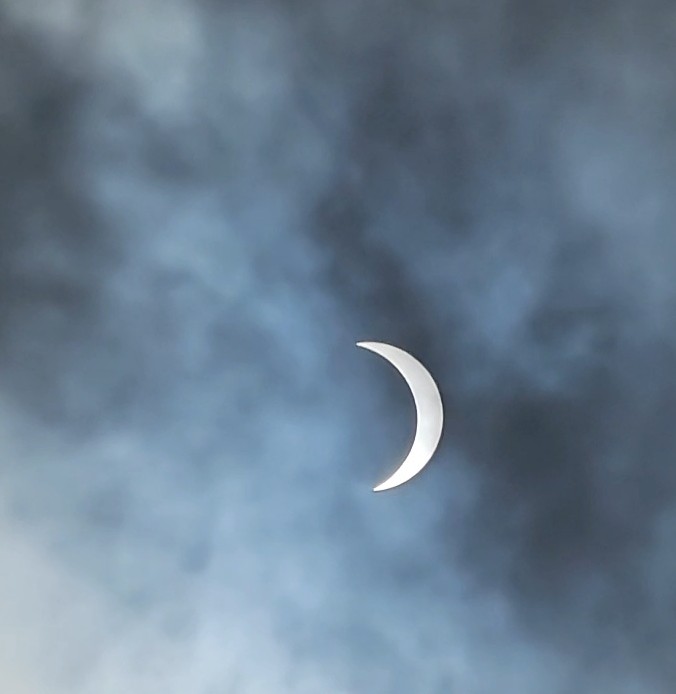Not only are CDs in 16bit, which is noticably lossy - it’s a human product. all human made stuff will have mistakes and errors. what about the editing, studio or anything else
The point is you can replay and copy it infinitely many times with no change in quality.
Just don’t mention the Nyquist-Shannon sampling theorem. Last time I did that I barely made it out of the record shop alive
Physics? In my record store? GET OUT!
“Noise floor? Don’t be silly, it’s analogue, there is no noise floor!”
miku miku beeeeaaaam
D/A and A/D | Digital Show and Tell (Monty Montgomery @ xiph.org)
This is a video about the digital vs analog audio quality debate. It explains, with examples, why analog audio within the accepted limits of human hearing (20 Hz to 20 kHz) can be reproduced with perfect fidelity using a 44.1 kHz 16 Bit digital signal.
There is no audible difference between an analog and digital audio signal.
“they’re part of BIG DIGITAL!”
It’s actually because of the limitations of analog media that analog audio might sound better. For example, you can’t compress the signal as much when mastering for vinyl instead of digital, since you risk the needle jumping between adjacent grooves. As a result, the vinyl version of a song can sound more dynamic.
It’s the opposite, no? Vinyl can’t handle the explosive dynamics common in modern music (especially electronic) due to the skipping issue, so any sharp peaks like that need to be compressed to make the overall mix more mellow
I did a bit of reading and it seems you’re right, but it isn’t quite as simple. You have to compress more, since you have less potential dynamic range on vinyl (so in practice a digital recording can be more dynamic than an analog one), but limiting is more problematic and an excessively limited recording has to be cut quieter or you’ll encounter issues. From what I read, these issues seem to be mainly unintended distortion and, again, needle skipping.
But your explanation makes sense and I’m not quite sure why excessive limiting would lead to skipping.
So, a limiter and a compressor are actually the same thing! Just used in different contexts. You can think of a limiter as being a compressor set to extreme values, so that you can guarantee that at no point will the volume go beyond a certain threshold.
So let’s think of like, a guitar string being plucked. It starts out loud and percussive, you get some string noise as well. Then the actual tone is played, starts as loud as it will ever get, then gradually reduces in volume over time naturally as the energy in the string is lost.
Suppose we set the limiter to be a very low threshold, just above the quiet ringing you would hear after like 15 seconds of letting the guitar string resonate. Essentially the limiter will aggressively turn down the volume during the whole beginning, then ease off as the tone naturally quiets.
The final result is that you’ve transformed a sound wave that started out with a large amplitude that gradually got smaller, into one that has a generally uniform amplitude throughout its entire duration! Then, as with all compressors, since you’ve actually reduced the amplitude of the wave, you can now turn the volume waaaaaaay up without clipping out. So now, stuff that used to be quiet is now just as loud as the loudest parts of your recording. A rustling leaf would be played at the same volume as a gunshot.
The issue this creates with vinyl is that carving such an extreme waveform into a physical medium results in a path the needle simply can’t follow accurately.
Imagine an old wooden roller coaster, one in which the cart isn’t attached to the track other than by gravity holding it there. If you included a sudden massive drop when the cart was moving at high speed, it wouldn’t follow the track, it would actually fly off the track briefly as it can only accelerate downward as fast as gravity will allow.
If the needle is the cart, and the carving in the vinyl is the track, these moments of air time will create audible distortion. It’s actually a bit more precarious than that, even, as vinyls actually use not only the up and down components of gravity, but left and right as well. The two tracks superimposed are what allows us to create a stereo image (having distinct sounds in the left and right speakers).
There’s also a ton of other things that can cause distortion, but I don’t want to ramble on forever! The basic rule of thumb is that a vinyl master essentially just has less low end. From what I understand, this is the root of why many people prefer “the sound” of vinyl, they simply prefer a slightly more mid-dominant mix
Just so long as you acknowledge the fact that 99% of digital audio you listen to is not meticulously optimized the point that there’s a discernable difference between it and analog sound.
I mean, the analog audio you listen to is very likely made in the same way, and then turned into a physical record.
Yes, but due to lossy compression. Not because of any limitations of digital audio.
I don’t judge what anyone else listens to, but records are better.
In your subjective opinion, for sure! The added enjoyment from using this vintage technology and the collectible aspect of vinyl records can bring about a more preferable experience compared to digital audio!
I’m having trouble connecting my record player to my car stereo over Bluetooth. Also it keeps skipping. Help!
Yeah, the antiskip on the record player I carry on my bikerack also works really poorly, and the record sounds awful when it rains .
I’m sorry I didn’t realize convenience was a factor in how good a format actually sounds… MP3 clearly is the winner for “best format when you’re on the go”, but records sound better.
I’m more than happy to use both
I like both. I was just making the point that “better” can depend on circumstances.
I quite like the sound of vinyl in general.It’s highly variable depending on the exact material used and how much play play it has gotten and even the read head, but that’s also part of the charm.
A FLAC file will always sound the same on the same equipment. Which can also be a benefit.
I had a friend who had a high end FLAC player and kept trying to convince me it was the best thing ever. Honestly though it didn’t sound any different than a really good MP3 to me though.
It was a really nice setup he had at his house, but the player was so expensive and all those FLAC files were huge and took up too much drive space for my liking.
I have a TON of MP3 music that I love too. A lot of that stuff doesn’t even exist on vinyl though and even if it did I’d need a whole second house to store that many records lol so I try to just get vinyl for special albums that are important to me.
I really think vinyl just sounds more “live” I guess.
I had a friend who had a high end FLAC player and kept trying to convince me it was the best thing ever. Honestly though it didn’t sound any different than a really good MP3 to me though.
The actual intent behind MP3 was to sound the same. Just like all later lossy codecs, it uses a psychoacoustic model to remove high frequency harmonics and other “buried” sounds that are supposedly imperceptible to most human ears, in order to save on data. At its max (CBR 320 kbps) almost nobody should be able to tell the difference from full CD quality.
I had a friend who had a high end FLAC player and kept trying to convince me it was the best thing ever. Honestly though it didn’t sound any different than a really good MP3 to me though.
FLAC has a different design philosophy. It’s lossless which means it literally keeps every byte of data from a CD or similar source but just compresses it. You can still get down to like 1/4 the size (vs like 1/8 for a high end MP3 or 1/12 for an average MP3). Storage was a big deal a couple decades ago but in this age of 4+ TB hard disks there’s not much reason not to go all FLAC all the time (except maybe if you really wanna cram as much music as possible into your phone).
I will happily pay the absurd modern prices for vinyl if I know for a fact there is a digital download card inside. Record companies need to put a fucking sticker on albums to let us know this because not getting one feels like an actual scam.
Also pretty much everything is digitally mastered anyway so if anyone judges you ask them if they own ANY analog albums
Wasn’t there even an “all analog” label in the US that claimed to use a fully analog pipeline in their process. People were saying it sounds so much better than the digital garbage we have, until somebody found out they were secretly using digital sources in their process and now the company got sued.
For all the recording nerds out there I highly recommend the book “Perfecting Sound Forever” by Greg Milner, which offers really good insights from both sides of the analog/digital debacle.
Yeah, Mobile Fidelity
https://www.audioholics.com/audio-technologies/mobile-fidelity-scandal
Yeah. And even when I’m deeply in the all digital FLAC camp over here, I truly understand the frustration people had with digital audio. The biggest reason for that was the radio wars of the 90’s, where every station wanted to be louder than the others to get better reviews and more listeners. And this pushed the studios to use all the headroom and compress their productions so even the CDs were already as loud as possible. This trend took over a decade, and kind of made music lovers think that vinyl sounds better than any digital audio. The early D/A converters were also kind of bad, so the early sound of a CD was not as good as vinyl was.
Nowadays we have the streaming services already normalizing all the tracks, so the mastering doesn’t have to be loud anymore. Actually even these 90’s and early 2000’s masters sound really bad when you normalize the audio. And whatever sound card you have in your phone or computer has a pretty good D/A converter, so today digital definitely can and will sound better than the vinyl. Of course vinyl has better aesthetics with the beautiful cover art, so it is nice to own if you have space.
Edit: for analog, reel-to-reel tape sounds absolutely amazing. Too bad it’s really hard to source any albums in this format.
VHS Hi-Fi is the best quality analog audio format, it’s so good you may as well use a CD for the marginal gains.
When people talk about analog they are almost certainly talking about the noise floor that isn’t present in digital, I believe reel to reel is equivalent to 8 bit audio depth. that’s what the tape hiss is all about .
We used to record radio programs to VHS back in the days. Again, one medium really hard to source original content in…
Some have something like a sticker saying there’s a digital download on them.
If there’s not… I put on my pirate hat
to be fair I don’t buy a lot, mostly because of the price, but I’ve never seen a digital card advertised. it’s always just been a nice surprise in something I was buying anyway. so I’m saying I’d buy more if it was a standard practice or advertised better.
One of the sillier reasons I still purchase vinyls is that it feels like I’m getting a cool poster along with the music
It’s like a large trading card that you can use to play music
I buy CDs for the booklets (and am massively disappointed if there is none)
deleted by creator
I’m not saying you’re wrong, but there are a good few digital drawing applications that have paper backgrounds and very convincing crayon/marker/pen etc tools… I draw my d&d character sketches with Fresh Paint on a surface pro with the stylus and everyone thinks they’re colored pencil drawings
deleted by creator
Pristine? I bass boost the shit out of everything.
We only accept low frequencies in this household 🗿
Hearing discernible sounds < boxing with lungs wrapped around one’s fists.
I have a reasonably expensive audiophile set up (nothing fancy by true audiophile standards mind you) but I still basically just listen to all my music through a pair of Skullcandy Crushers lol
What’re you running now? I’ve been using Sony MX’s for a long time now, but I love the idea of the Crushers for those times I want to feel like the walls are made of subwoofers, and they seem inexpensive enough for a decent pair of secondary headphones.
I’ve got a rather large collection tbh, my wired setup consists of a FiiO USB DAC (I can’t remember which model) and a pair of Sennheiser HD600s. I’ve also got the absolute dirtiest Skullcandy buds, cheap as chips and so noisy lol but they’re good enough when I’m cycling.
For wireless, I’ve either got my Sennheiser PXC550 IIs or the Crushers (rainbow pride version duh), but occasionally I’ll just use a set of shokz bone conduction buds if I’m going to be out with people and want some background music.
There’s plenty of others I don’t use very often, for one reason or another.
Well, now that I know they make pride Crushers, you’ve definitely sold me lol
omg literally me
CD sales are also going up…
Barely, and that may have more to do with Taylor Swift than anything else.
may have more to do with Taylor Swift than anything else.
Can CDs be used as an alternative type of jet fuel?
Dont tell them, but I mixed in protools before outputting to a conversion box to get it on the vinyl
But vinyl is still inherently lossy, so the argument still applies.
Exactly it makes both camps mad.
Most musical instruments are analog. Digitizing them is inherently lossy. I mean, it doesn’t matter, you can get both digital and analog recordings that are orders of magnitude more accurate than human hearing, but claiming that analog is more inherently lossy than digital is just factually incorrect, unless the music is produced purely digitally. Including no human voices, because those are analog.
Digitizing is only lossy once*. Analog is lossy every time you copy it and degrades over time.
*Assuming you use a lossless digital format
Not just any time it’s copied or generally over time, but each playback can degrade the quality. Record pins erode the channels, magnetic heads affect the strength of the magnetic field they read.
Reads, copies, and time don’t (necessarily) degrade digital media, even with lossy compression (time can, but any time it’s copied, it resets the clock to as good as the media can give; analog doesn’t get that reset). Lossy compression only degrades it on conversion and there’s a bunch of control over the shape of that degradation (with the intent of it not being detectable to our ears, though it obviously also depends on the bandwidth available).
That is an actual fair criticism. Well, part of it. All of our current digital media technology actually degrades over time faster than analog ones, but they’re so easy to copy that it’s not really a problem for things that people like to make copies of. It is a problem for archiving though. I wasn’t trying to argue that digital has no advantages. Just that it’s not magically better in every way.
But if you lose the information how to turn those bits into music, it is gone forever. That Edison cylinder is pretty easy to play compared to that opus or mp3 file you found from the grave 40000 years from now.
You can sit here and have an argument about Nyquist-Shannon, but it isn’t relevant for lots of music made in the past 40 years since it was made or recorded digitally.
If your work was made with a DAW there’s no point to analog.
I’ve got a record from a smaller artist somewhere that I swear has fucking mp3 compression in it, because they don’t know how to export their shit like an adult.
The only meaningful difference between them is that digital is cheaper to copy. Your ears are analog though, so everything you’ve ever heard in your entire life is 100% pure analog, and I explicitly said in the post you seem to think that you’re disagreeing with that they’re both orders of magnitude better than they need to be.
Nearly all music is recorded digitally, anyway, and has been for a while.
Sure, and there’s nothing wrong with that. They’re both plenty good enough, and digital is cheaper to copy accurately. It’s also actually possible to make a copy of a copy of a copy digitally and have it still be accurate. I wasn’t attempting to say we shouldn’t use digital, or that it has no advantages, just that the argument in the original post makes no sense.
Analog is inherently lossy due to the materials and playback method. Vinyl records sound different when they are dusty.
Digital is inherently lossless because the Nyquist–Shannon sampling theorem guarantees that, given a sufficiently high sample rate, all information from the ordinal signal is preserved.
But isn’t live music analogue?
Your speakers are analog. They sound different when they are dusty. Your ears are analog. Things sound different when you have dirty ears. Nyquist-Shannon sampling theorem only applies when there are no frequencies outside of the sample range, which doesn’t happen in real life. None of this matters, because like I said it’s trivial to have orders of magnitude more accuracy than you need. Digital is just way cheaper to copy accurately, so that’s why it has become dominant, and that’s fine, but the idea that it’s inherently more representative of reality is just gibberish.
It is inherently more representative of reality. Measurably so. Vinyl doesn’t and cannot have the same dynamic range as digital.
You know that vinyl is not the only way of recording analog information, right?
There is also cassette tapes, reels, wax cylinders, laser discs… Analog supports degrade over time. Digital files do not.
Digital storage devices have way shorter lifespans than analog ones. Digital information can be more reliably copied, but we are constantly losing massive amounts of information to digital storage loses when it falls out of public consciousness. If no one is actively copying it, it is doomed in the digital age. We still have analog storage that’s good enough to be useful from thousands of years ago.
Digital files have checksums. You literally know when something has changed and you lost information. And then you have error-correction on top.
The analog storage you are referring to from thousands of years ago has degraded substantially since its creation. Yes it’s still useful but I wouldn’t use that as evidence it’s a better medium. Case in point: texts (a digital storage form) from thousands of years ago can be retransacribed to be exact copies of the original (with respect to the knowledge contained within of course) whereas paintings from the Renaissance have changed dramatically due to aging and can never be returned to their original form since the needed data is lost.
Vinyl sounds different per use, since it wears out.
But there’s a difference between converting a JPEG to a PNG and re-compressing a JPEG as another JPEG.
True. I wasn’t trying to argue that there are no advantages to digital, or even that we should go back to analog. Just that the argument in the post doesn’t make sense.
Smooth graph better than steps though maybe ear technology will improve and then you’ll see!



















